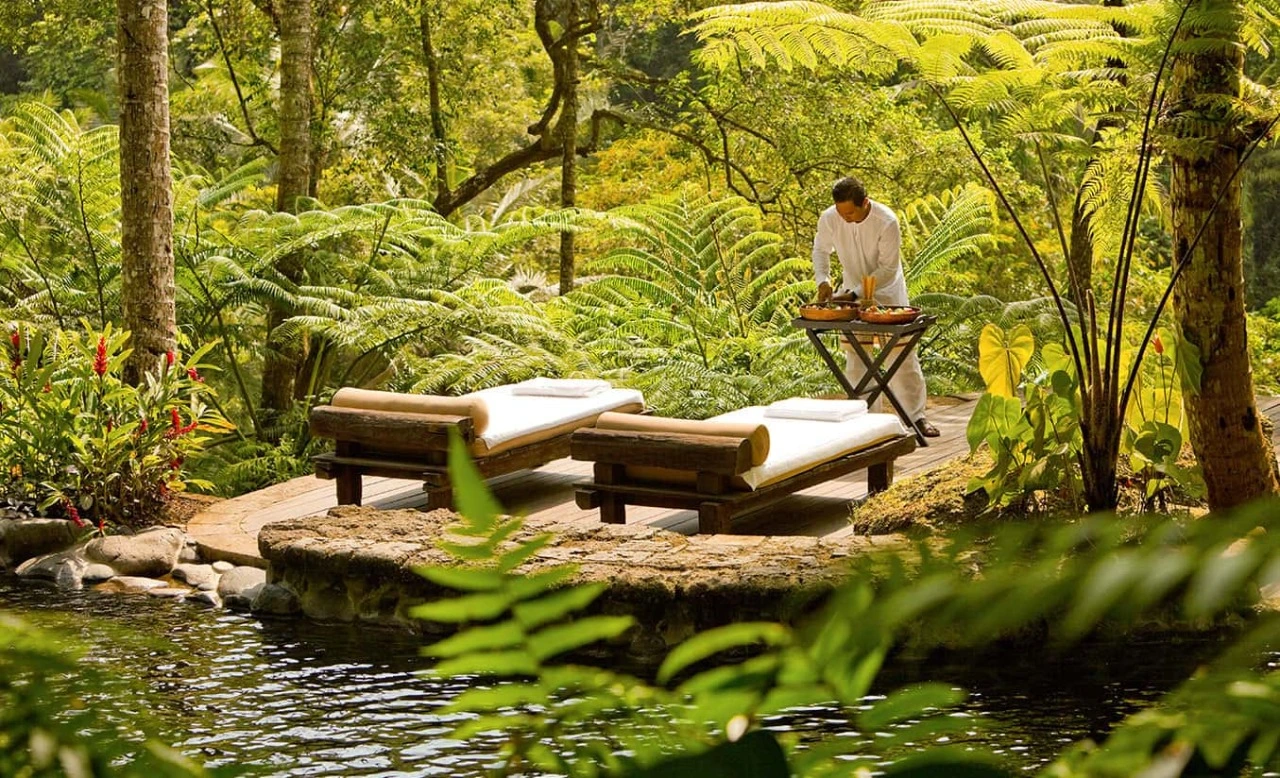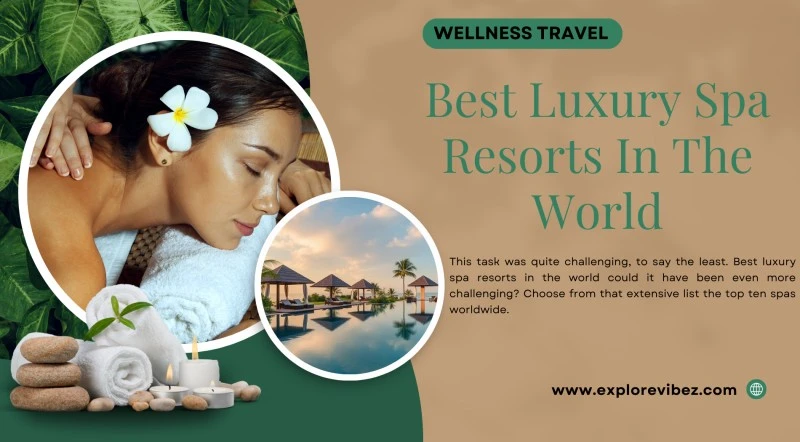For a large number of us, seeking well-being while travelling is just as important as practicing health and wellness in our daily lives. Enter wellness tourism, a concept that the U.S.-based nonprofit organisation Global Wellness Institute (GWI) defines as travel associated with the pursuit of maintaining or enhancing overall personal well-being.
It is important to note that although "health" and "wellness" are often used interchangeably and are related terms, they have slightly different meanings. According to Gallup, health is part of well-being and describes a healthy lifestyle that is not limited to acute illness and Gallup and the Centers for Disease Control and Prevention (CDC) define well-being in a broader life context as feelings of contentment and satisfaction and positive function in career, social, financial, physical, psychological, and other frameworks—wwhich are important for personal and public health.
History of Wellness Tourism

Wellness tourism may be common now, but individuals have been travelling with health or wellness as their major objective for decades. According to Sources, Early civilisations recognised the healing value of hot springs and built healthcare facilities around them.
According to previous studies, the ancient Greek, Egyptian, Roman, Celtic, and Hebrew civilisations had health institutions that drew visitors from all over the globe. Baths of various temperatures, swimming pools, exercise rooms, and chambers for massage and other health treatments were staples of Roman civilisation, according to the World History Encyclopedia. People began travelling to India 5,000 years ago to benefit from Ayurvedic treatment, which takes a comprehensive approach to physical and mental wellness.
While travel for wellbeing dates back thousands of years, wellness tourism as a worldwide sector is relatively young, according to the Wellbeing Tourism Association (WTA).
In the early 2000s, the marketing message of the spa sector shifted from 'cocoons' to 'prevention' and this was the beginning of the so-called wellness tourism.
These days, the wellness-travel options are almost unlimited. Whether your hobbies include yoga and meditation, spa experiences, weight reduction, hiking, or even therapies that claim to be tailored to your DNA, such as the Chenot Palace Weggis health and wellness resort in the Swiss Alps, there's a vacation for you.
How does wellness tourism work?
Do you ever feel the desire for another vacation after you've had one? This may not be the case for wellness tourism. Traditional holidays are frequently hectic and stressful, but wellness travel seeks to reduce stress and enhance health, allowing you to return to your daily life feeling refreshed and grounded.
Many individuals find that when they are relieved of their daily obligations, they are more willing to change their behavior. "Most people try to keep their lives as organised and predictable as possible, because they put less thought into their normal daily lives, the easier it is to manage," says Michael Brein, PhD, a travel psychologist residing on Bainbridge Island, Washington.
Related Post : The Top Wellness Travel Trends for 2024
Being in an atmosphere where you don't have to make daily choices may enable you to try out new habits or concentrate on nurturing ones you've ignored. This may help you develop healthy habits, such as sleeping better, eating properly, and exercising on a regular basis, that you will want to continue after you return home. A small observational study from Australia published in the February 2017 Journal of Alternative and Complementary Medicine discovered that weeklong retreat experiences may lead to significant benefits in several aspects of health and well-being that last for six weeks thereafter.
Furthermore, many wellness vacations include access to services that help improve mental and physical health, such as massage treatments, yoga sessions, and dietary consultations. According to Lorandini, these experiences may help you come home feeling rejuvenated and more prepared to deal with daily challenges.
FAQ
1. What is a wellness vacation?
A wellness vacation can treat not only general health problems such as stress and anxiety, but also many specific problems such as weight loss or detox.
2. What does travel health offer?
The secret to getting ahead is starting with your tan line. Motivation is the beginning. The habit of traveling takes you further.
3. What is a wellness resort?
A wellness resort is a type of health and wellness vacation destination focused on advertising. These resorts typically offer a variety of activities and amenities designed to help guests relax, reduce stress and improve overall well-being.
4. What's important? Health and wellness tourism?
Health and wellness tourism provides a unique opportunity to improve physical and mental health by discovering new cultures and traditions. With a variety of destinations and activities, there is something for everyone.











.jpg)